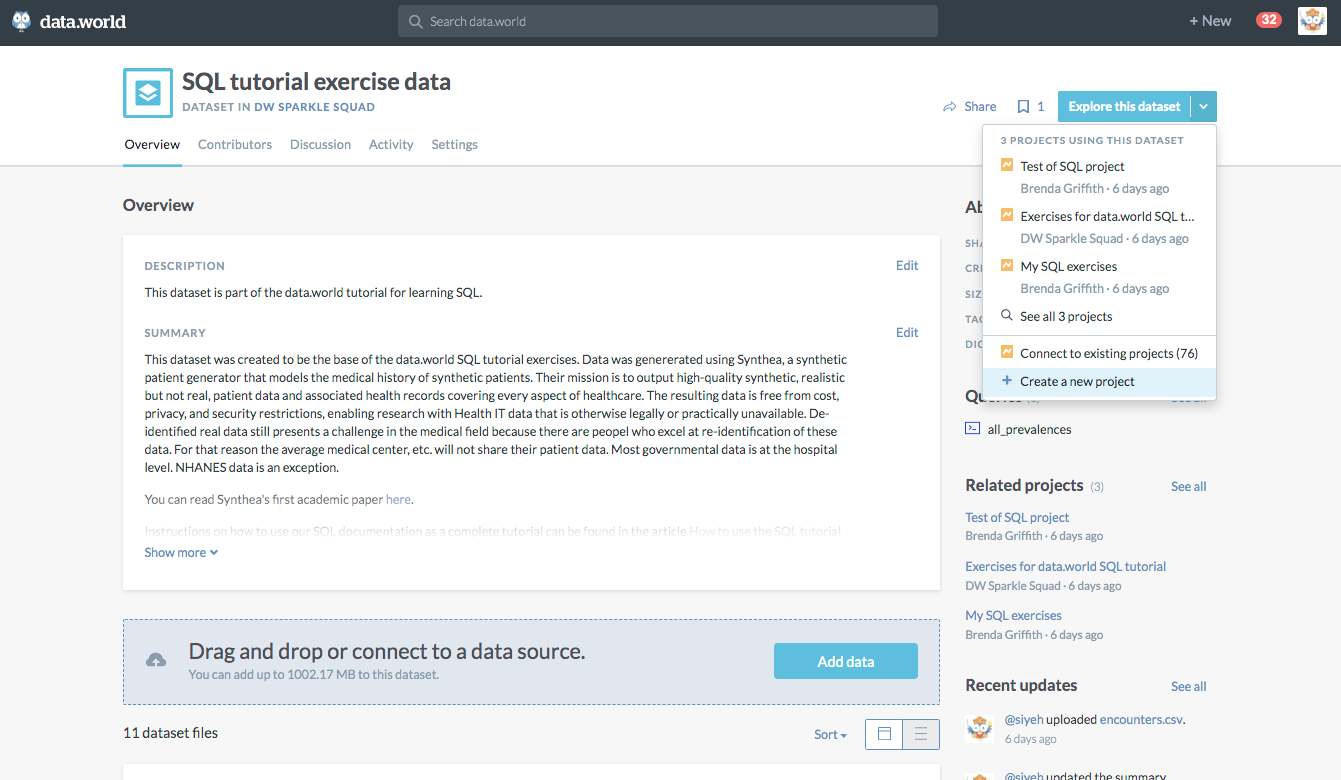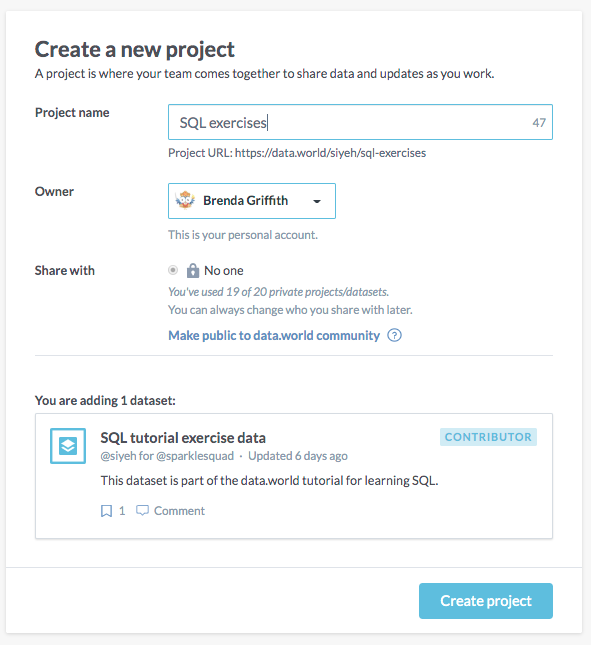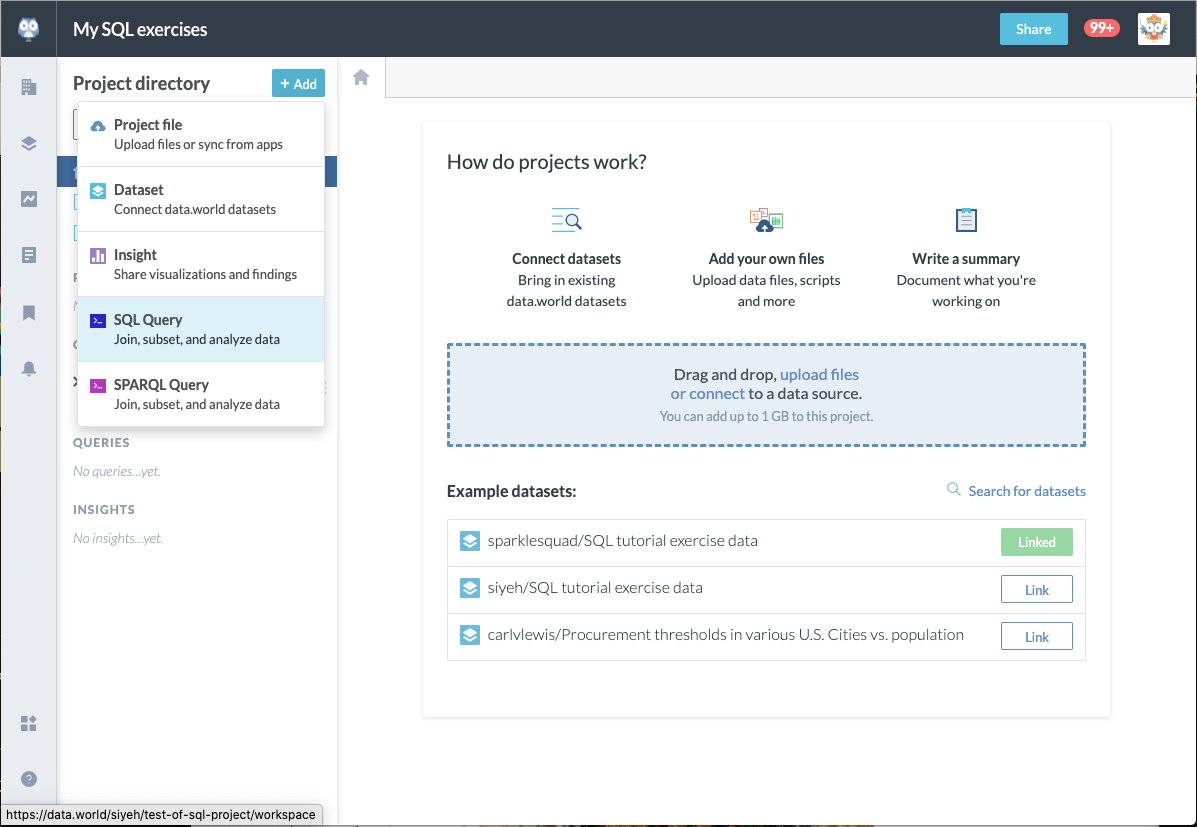data.world SQL tutorial
Our SQL documentation is a ground up guide to using SQL for querying datasets on data.world. Many of the sections have exercises at the end of them, and these sections and exercises make up our SQL tutorial. There are three sections in this tutorial:
Setting up the tutorial project
How to use the project
Content and exercises
Setting up the tutorial project
In order to do the exercises for our SQL tutorial you will need to have a data.world account. They are free, and you can get one here. If you already have an account on data.world, the previous link will take you to your home page.
The exercises in the tutorial are based on the dataset SQL tutorial exercise data. Once you are logged in to data.world you'll have access to the dataset, and you can create your own project to use with the exercises. You can do the exercises without creating your own project by following the Try query link on each exercise, however we recommend saving your own project with answers for each of the exercises as some of the exercises are built on the results of previous exercises. Follow the steps below to create your project:
Go to the SQL tutorial exercise data dataset on data.world. Select the down arrow to the right of the Explore this dataset button and select + Create a new project
 Add your project name, leave all the other options as they are, and select Create project. On the next screen you can either enter a description or do that later.
Add your project name, leave all the other options as they are, and select Create project. On the next screen you can either enter a description or do that later.
 |
After you have created your project, the first page you’ll see is the project workspace.
How to use the project
Follow the links in Content and exercises below to read each section in the tutorial. When you are ready to do the exercises, open the project you created for the tutorial and select + Add -> SQL Query in the Project workspace:

You'll be taken to a new blank query window. If you need help on how to format your query or an introduction to data.world’s query tools, see Querying the data. When you have finished writing and testing your query, select Save next to the Run query button. We recommend that you name your query with the number of the exercise (e.g., Exercise 1).
The SELECT and FROM Clauses
An introduction to the SELECT and FROM clauses and their related keywords
LIMIT
An introduction to the LIMIT clause.
WHERE and comparison operators
An introduction to the WHERE clause and comparison operators.
ORDER BY
An introduction to the ORDER BY clause.
AND, OR, and NOT
An introduction to the keywords AND, OR and NOT.
Arithmetic Operations
An introduction to the arithmetic operators +, -, *, \.
IS NULL and IS NOT NULL
An introduction to the expressions IS NULL and IS NOT NULL.
LIKE and NOT LIKE
An introduction to the LIKE and NOT LIKE keywords.
BETWEEN
An introduction to the keyword BETWEEN.
OFFSET
An introduction to the keyword OFFSET.
Joins
An introduction to table joins including the conditions used in them, and their different types.
CAST
An introduction to the expression CAST.
Aggregations
An introduction to aggregations, aggregation functions, and aggregation modifiers.
GROUP BY and FILTER
An introduction to the GROUP BY clause and FILTER modifier.
HAVING
An introduction to the HAVING clause.
CASE
An introduction to the CASE expression.
IN and NOT IN
An introduction to the expressions IN and NOT IN.
Working With Dates
An introduction to working with dates.
Final Notes
Our SQL documentation and tutorial are works in progress and this list of exercises will continue to expand.